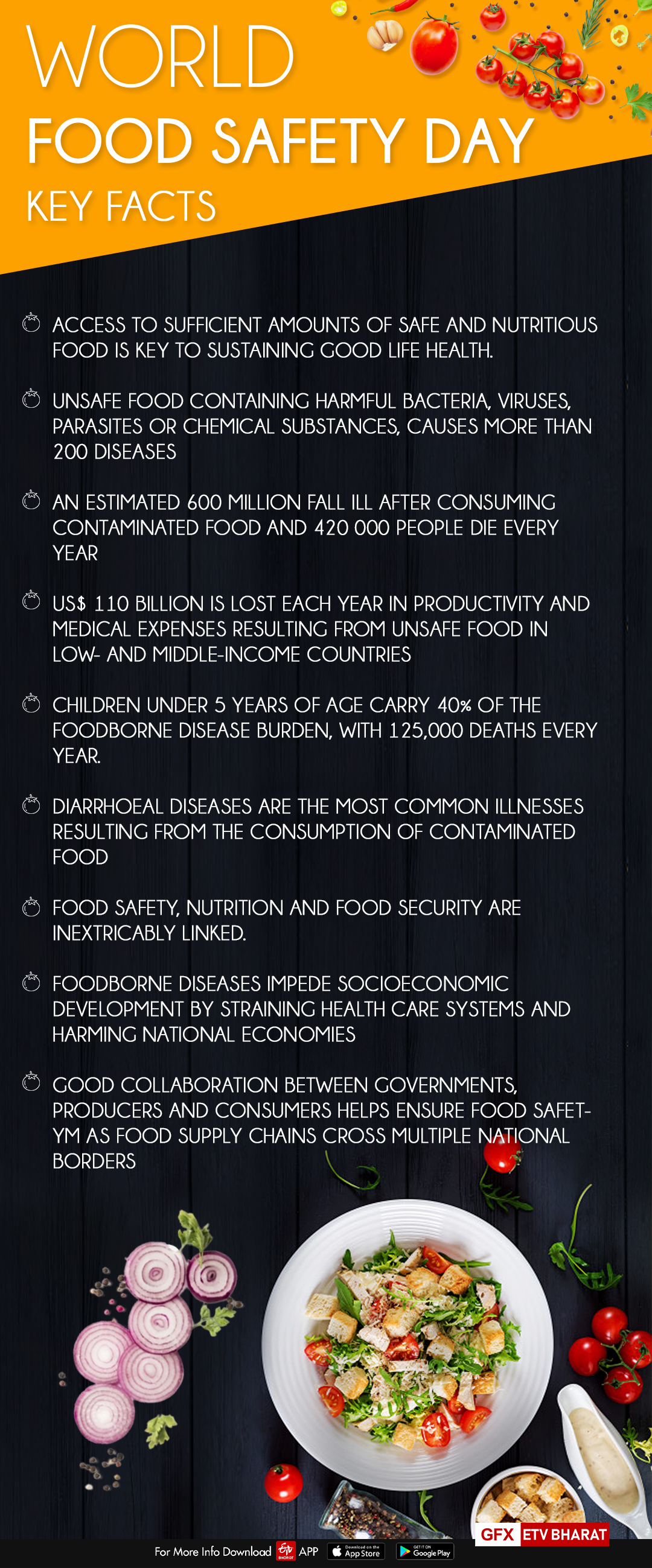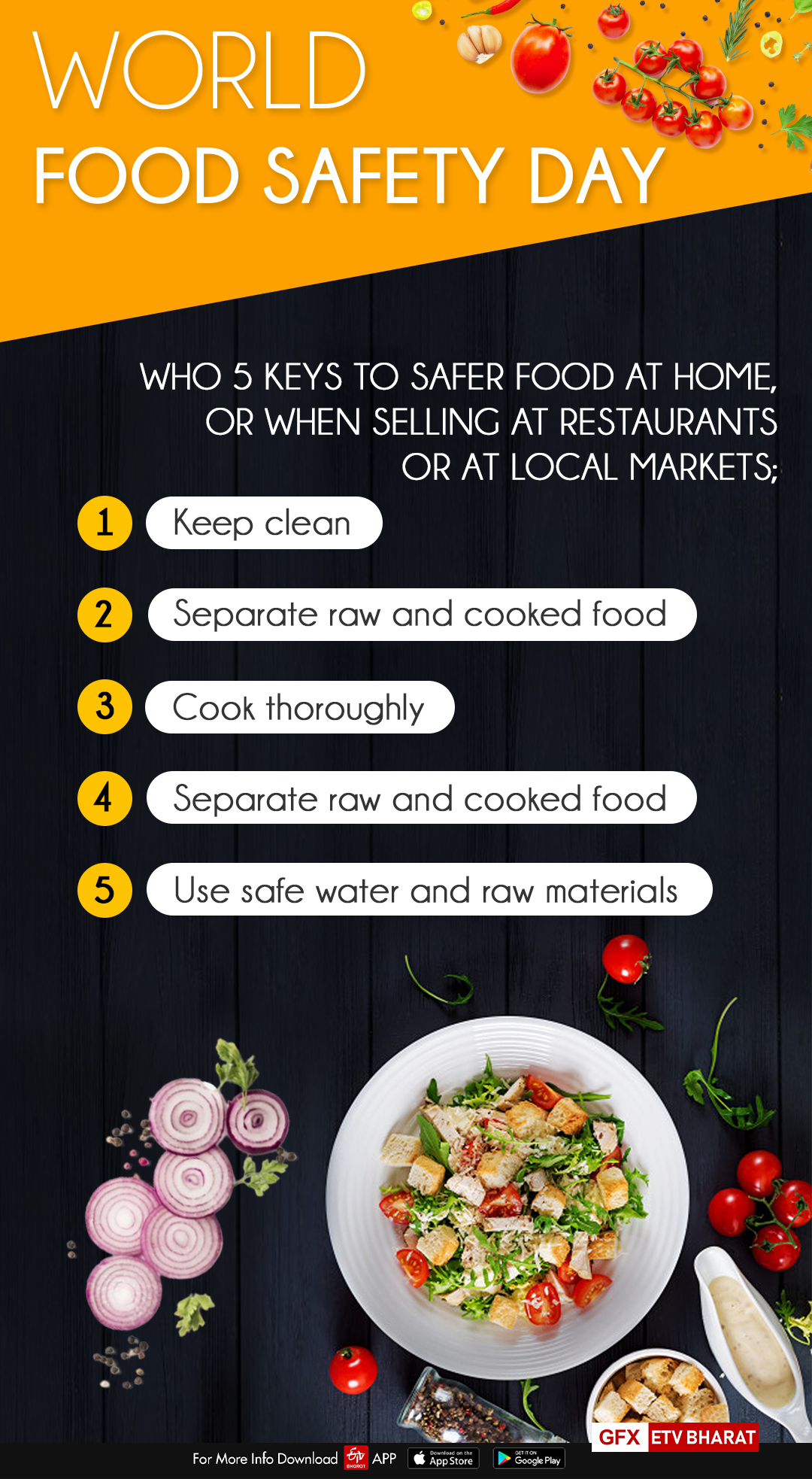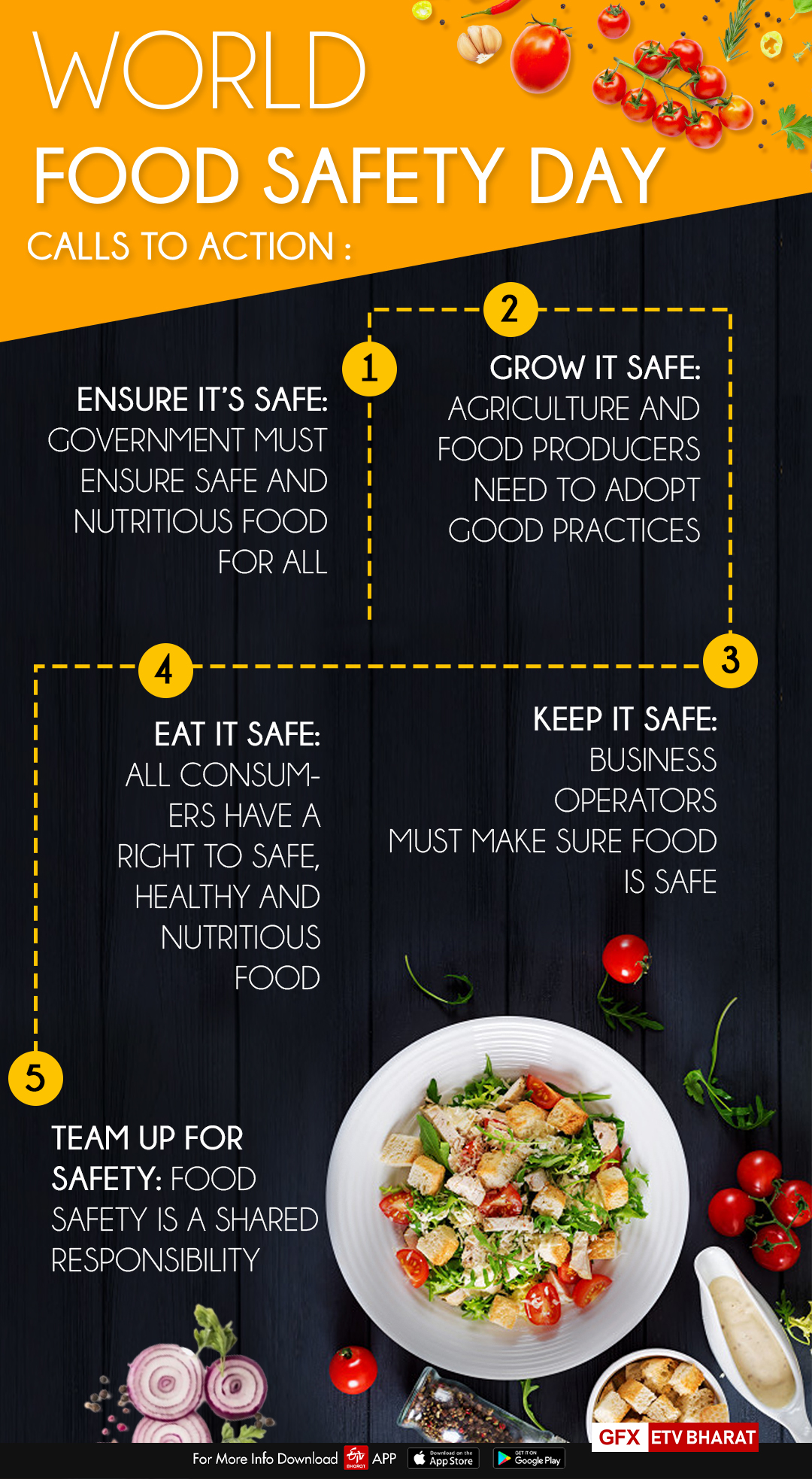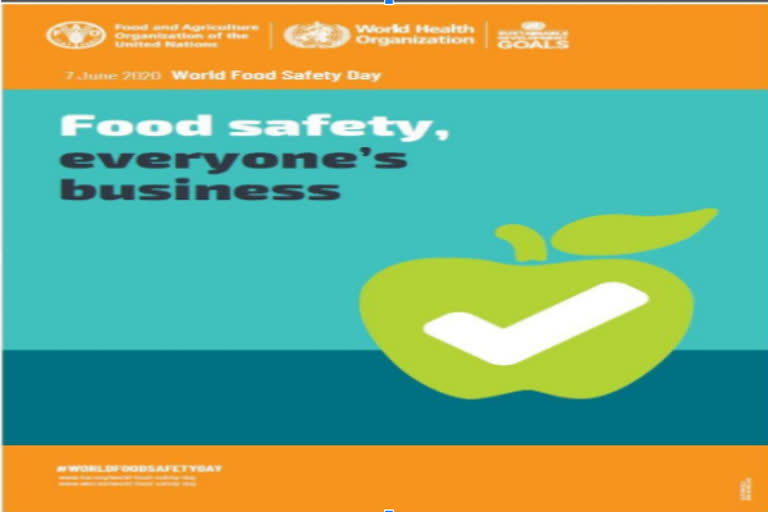Hyderabad: In order to draw attention of people towards food safety and inspire action to help prevent, detect and manage food borne risks, contributing to food security, human health, economic prosperity, agriculture, market access, tourism and sustainable development, the second World Food Safety Day (WFSD) is being celebrated today under the theme 'Food Safety, everyone's business'. The action oriented campaign will promote global food safety awareness and call upon countries and decision makers, the private sector, civil society, UN organizations and the general public to take action.

The first food world day was celebrated in 2019, which was the result of 73rd session of the United Nations General Assembly held in New York in 2019.
Food safety is a shared responsibility between governments, producers and consumers. Everybody has a role to play from farm to table to ensure the food we consume is safe and will not cause damages to our health. Through the World Food Safety Day, WHO pursues its efforts to mainstream food safety in the public agenda and reduce the burden of food borne diseases globally.
What is Food Safety?
Food safety is the absence or safe, acceptable levels of hazards in food that may harm the health of consumers. Food-borne hazards can be chemical or physical in nature and are often invisible to the plain eye.

Food safety, everyone’s business:
Safe and nutritious food is everyone's right, yet even today almost one in ten people in the world fall ill after consuming contaminated food. Safe food is a prerequisite for human development. It is also critical for promoting health and ending hunger, two of the 17 goals of the 2030 Agenda for Sustainable Development and in a world where the food supply chain has become more complex, any adverse food safety incident can have a negative impact on public health, trade and the economy. Unsafe food (containing harmful bacteria, viruses, parasites or chemical substances) causes more than 200 diseases – ranging from diarrhea to cancer.
Also read: Most urban Indians hopeful of jobs return post lockdown: Survey
This international day is an opportunity to strengthen efforts to ensure that the food we eat is safe:
Today almost everybody is responsible for food safety and on this day all stakeholders should take upon the responsibility to raise awareness about food safety and to highlight that everyone involved in food systems has a part to play. To combat ongoing changes in climate, global food production and supply systems everyone needs to consider food safety now and in the future.

Food safety in India:
India is facing a food fraud problem with about ten states unable to ensure food safety and 15% of food samples failing to pass quality tests. “The food regulator analyses a total of 106,459 samples across India and finds over 15.8% food samples as sub-standard, 3.7% unsafe, and 9% mislabeled during the year 2018-19. (Authentication Solution Providers’ Association (ASPA) said in a report ).
Need of the hour:
Since we dealing with the pandemic, now it has become more important to eat healthy and safe food. As there is no specific medicine for the Covid-19, only a strong immune system can be helpful against the virus, which is why Ayush ministry & FSSAI released guidelines, about various foods which can increase the immunity. Several doctors & dietitians are also recommending food loaded with vitamins like C & D.
FSSAI (food regularory in India) has released few guideline to keep food safe & eat healthy during the pandemic:
When buying fruits during Covid-19 choose the ones that are-
1. Fresh
2. Local & seasonal
3. Free of blemishes
4. Ripe but not overripe
Also:
1. Maintain good personal hygiene
2. Separate raw & cooked food
3. Cook & reheat food thoroughly
4. keep food at safe temperature
5. use clean, portable water to wash raw food items
6. Cook meat well
7. Use different chopping boards & knives for raw meat & cooked foods
8 Stay Hydrated
9 Avoid sharing food utensils, water bottle or cups
10 Eat foods rich in vitamin C to boost your immune system
11 Keep food covered to protect it from pests & germs
12 Refrigerate leftover food immediately
13 Wash- fruits & vegetables, milk packets etc
14 Clean (packets of cereals & Pulses) before storing
Also read: British WWll veterans in 104-mile cycle challenge
Myth Buster on Covid:
Eating meat cause coronavirus-- There is no evidence to prove that coronavirus can spread through meat. The meat should always be cooked thoroughly and safe food handling practices must be followed before its consumption.
Eating rasam or currry help prevent Corona virus: No, there is no scientific evidence to prove that rasam or curry help prevent coronavirus. However, they help to promote digestion & provide other health benefits.
Hand dryers are effective in killing COVID-19: Hands should be frequently washed with soap & water. Also it is not safe to receive a food package from any area where COVID-19 cases have been reported. As a precaution, clean the food package with a disinfectant and then wash hands with soap & water.
Eating frozen foods & ice cream spread coronavirus: There is no scientific evidence to prove that eating frozen food & ice cream spreads coronavirus




